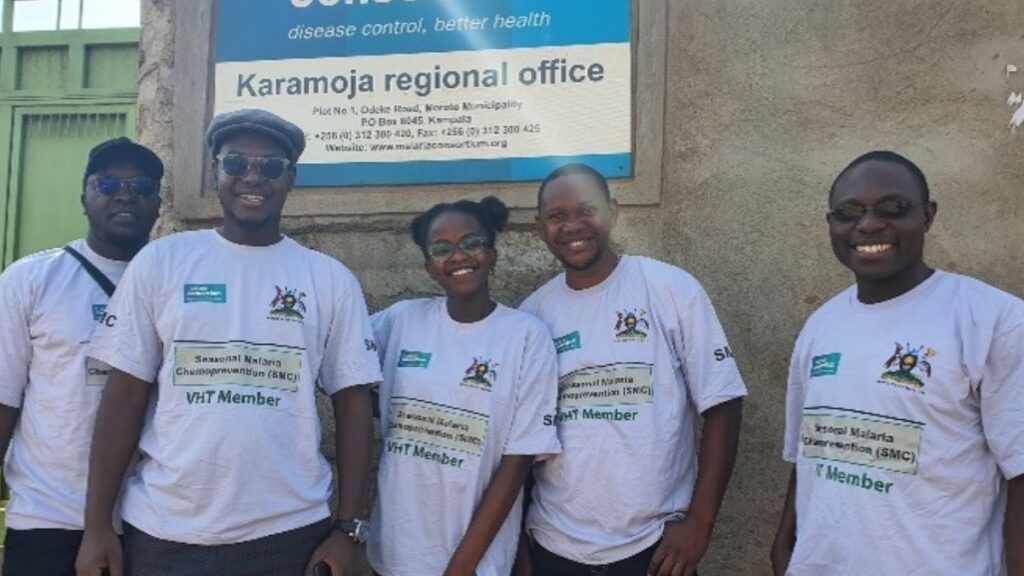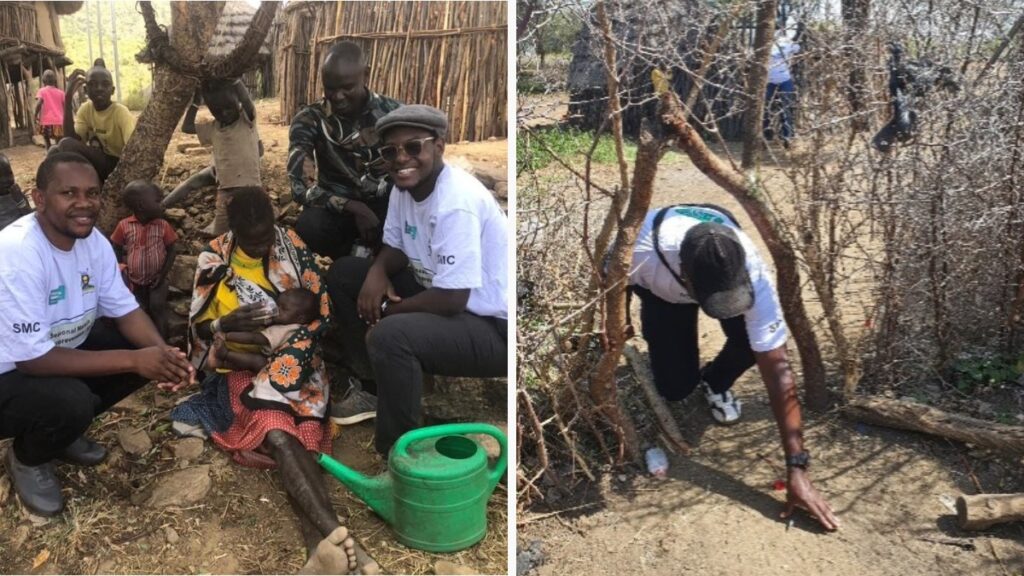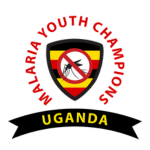In 2023, members of Malaria Youth Champions Uganda participated in seasonal malaria chemoprevention campaigns by conducting interviews with household members, addressing concerns and ensuring safe administration of sulfadoxine-pyrimethamine and amodiaquine.
Introduction
Malaria Youth Champions Uganda is a team of highly motivated youth and young professionals who are determined to contribute their talent, time and energies to the fight against malaria.
Uganda is one of the highest malaria-burdened countries in the world. In 2022, it accounted for the 3rd highest number of cases and the 8th highest number of deaths globally.
Over the past three years, the Malaria Consortium, in partnership with the national malaria control division, has been implementing seasonal malaria chemoprevention (SMC) in Karamoja region, a high-burden region where transmission is highly seasonal. SMC is the intermittent delivery of a complete therapeutic dose of sulfadoxine-pyrimethamine and amodiaquine (SPAQ) to children aged 3 months to 5 years just before transmission season.

Youth champions in Karamoja region during the 2023 August SMC cycle
Youth champions supporting SMC in Moroto District
Malaria Youth Champions Uganda was invited by the Malaria Consortium to participate in a seasonal malaria chemoprevention campaign in August 2023. Five youth champions joined teams conducting the implementation in Moroto District and were tasked with supervising and studying the process. Each team consisted of a youth champion supervisor, a Malaria Consortium supervisor, a local health worker who could speak the local language and a driver. Village health teams distributed the sulfadoxine-pyrimethamine and amodiaquine in the communities.
Roles for youth champions in the SMC campaigns
Seven sub-counties of Nadunget, Loputuk, Rupa, Tapac, Katikekile, Northern and Southern Divisions received the seasonal malaria chemoprevention during the 2023 August cycle.

Photo 01: Denis Kisubi and Jemba Michael supervise the giving of SPAQ to a child. Photo 02: A youth champion visits a house in a village in Karamoja region
Field activities: Reviewing records, conducting interviews and supporting safe administration of SPAQ
The youth champions reviewed village health team records and children’s charts to verify that SPAQ had been given and estimated the SMC coverage attained.
They also held in-depth interviews and focus group discussions with mothers, aimed at verifying whether children had received the medicine, as well as assessing both acceptability and attitudes of the community towards SMC.
They also assisted the village health teams in ensuring safe administration of SPAQ such as the use of boiled water and clean utensils as well as identification of children ineligible for the treatment, mostly due to febrile illnesses requiring referrals to the health centres.
The youth champions guided the village health teams in completing records such as:
- daily tally sheets for SPAQ accountability
- SMC Health Facility Daily Summary Form with details of children referred to the health centre due to a current malaria episode, those re-dosed with SPAQ and those receiving it for their first time
255,000 children received SPAQ
across 7 sub-counties in the 2023 August cycle
Health facility activities: Reviewing records and analysing data
The youth champions reviewed malaria-specific outpatient records for two years prior to the seasonal malaria chemoprevention and compared them with records following the implementation of the programme. Additionally, the team summarised and analysed data from the August cycle as delivered to the central facilities by the different village health teams.
Observations from the youth champions’ fieldwork
From focused group discussions, it was observed that most households visited were receptive to the intervention because of the reduction in children’s illness and hospital visits previously attributed to severe malaria episodes. The acceptability of SPAQ in some households is highly attributed to palatability of the medicines.
A steady average reduction in malaria cases among children was also seen over the period of two years, with the success presumably attributed to the SMC programme.
From in-depth conversations with caretakers unreceptive to SPAQ, reasons for not taking the therapeutic dose included:
- A mother of a 2-year-old child who had never received SPAQ because of her husband’s objections to the programme. This was because he was yet to understand the concept of taking the therapeutic dose for malaria prophylaxis. The youth champions explained to the mother how it protects children from severe forms of malaria, evidenced by the severity trends of children in her neighbourhood that suffer from the malaria compared to before the SMC campaigns.
- among some community members, refusing the therapeutic dose was mostly attributed to their ability to afford antimalarial medications for their children diagnosed with malaria rather than seek prophylactic SPAQ.
- for a few other community members, refusal was mostly because of the minor observed side effects
Improving knowledge of malaria control and understanding of malaria epidemiology of youth champions
Participation in SMC implementation provided an opportunity for the youth to experience the implementation of one of the most important tools for reducing the burden and progress towards elimination in Uganda’s malaria control and elimination toolkit.
For the youth champions, the experience improved their:
- technical knowledge of malaria control
- practical knowledge of community-based intervention deployment and SMC as an intervention
- understanding of malaria epidemiology in high-burden rural settings
Social media awareness campaign reaches hundreds of young people
After completion of the activity, the youth champions initiated a malaria SMC awareness campaign on X (formerly known as Twitter), in support of continued and expanded SMC in the Karamoja region.
The campaign attracted 2,500 views, over 40 reposts and 13 engaging comments.
These included questions from users who wanted a better understanding of sulfadoxine-pyrimethamine and amodiaquine.
Empowering youth champions in the fight against malaria in Uganda
The Malaria Youth Champions Uganda is now more empowered to:
- advocate for malaria control more broadly and SMC in particular
- continue providing practical support to the NMCD and its partners
- mobilise communities to better understand and take up life-saving interventions
The youth champions are looking forward to taking part in other malaria control activities at all levels to support a malaria-free Uganda.
